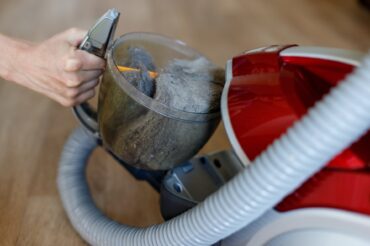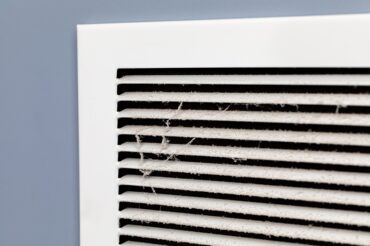Proper ventilation is a critical component to your HVAC system. If used as recommended and in conjunction with your HVAC service provider, it can be an important factor in virus prevention and spreading unhealthy air indoors. Since March, studies reported in news articles and on television talk about the benefits of enhanced ventilation in reducing the spread of COVID-19 and other viruses like influenza. As your Kansas City HVAC provider, we feel a responsibility to keep you informed with factual industry information to help you rest comfortably knowing you’re doing everything you can to protect those important to you.
What is ventilation?
The World Health Organization (WHO) defines ventilation in these simple terms: Ventilation is the intentional introduction of fresh air into a space while the stale air is removed. This process is done to maintain the quality of air in that space whether it be in a residential home or a commercial building.
How can I improve my residential ventilation or improve the indoor air quality of my business?
According to WHO, the Centers for Disease Control (CDC) and the Environmental Protection Agency (EPA), there are a few simple and affordable mitigation strategies that help you counter the effects of poor ventilation in your building.
- Open windows to bring in fresh air. Natural air will dilute viral particles and other indoor pollutants such as mold, pet dander, harmful microbes and contaminants. In the case of reducing the spread of coronavirus, it can help reduce the viral load present in the air and severity of an infection.
- Use your HVAC system whenever possible during outbreaks as it acts as a filter for air as it circulates.
- Run the system fan for longer times, or continuously, as HVAC systems filter air only when the fan is running. Many systems can be set to run the fan even without heating or cooling taking place.
- Consider removing airborne particles and contaminants with filters or upgrade existing filters to higher efficiency filters or the highest-rated filter your system can accommodate.
- Use a portable air cleaner or whole home or building air purifier. Many products on the market today, including UV Lights and air purification systems, will run when the furnace and A/C aren’t in use.
- Increase the relative humidity within your space using water via a humidifier to help improve ventilation and indoor air quality.
When should I call a professional ventilation specialist?
Due to the complexity and diversity of building types, size, construction styles, HVAC system components and other building features, the CDC, EPA and WHO are all in agreement that an HVAC expert is your best resource to improving ventilation and indoor air quality.
No one knows your complete heating, ventilation and air conditioning system better than the certified technicians at Top Notch. We can help you achieve the strategies listed above, as well as suggest more advanced indoor air mitigation techniques available through your HVAC components to provide greater peace of mind and protection for employees, customers and loved ones. Contact Top Notch today for your personalized indoor air quality and ventilation evaluation.
Please note: Increasing ventilation is part of an overall plan to protect people indoors from SARS-CoV-2. Increasing ventilation alone is not enough to reduce the spread of viruses and stop infection. It should be used in conjunction with other best practices recommended by the CDC, WHO, EPA and local and national health professionals.






